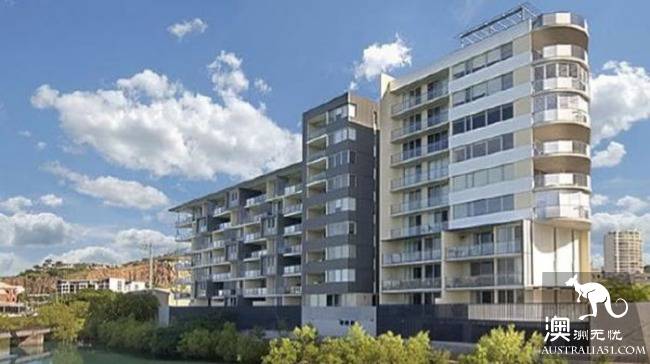When it comes to shadow banking, we are no stranger. Like China, Australia also has "Australian shadow banking". It is unclear how big and how wide the impact will be, but with (APRA), the Australian prudential regulator, embarking on a crackdown on local non-bank lending, the answer may be on the horizon.

The concept of shadow banking was first proposed by Paul McCulley, executive director of the Pacific Investment Management Corporation of the United States, at the 2007 annual meeting of the Federal Reserve, meaning to be separated from the regulatory system. A financial institution corresponding to the traditional commercial banking system regulated by the central bank.
Similar to China, Australia`s shadow banking sector has been on a barbaric trend over the past five years, with compound growth of 46 percent, accompanied by a rapid rise in house prices over the past five years.
So what are the Australian characteristics of shadow banking in Australia, and what is the foundation of its existence? Overall, Australian Silver Bank is based on the following four major factors.
First, almost all housing development projects in Australia are for sale.
Second, Australian real estate investment has a negative withholding tax system.
Third, Australian banks gradually withdraw property development project financing.
Fourth, the rapid increase in Australian immigration, to provide support for the drumming, Ponzi scheme.
Australian Silver Bank-Development projects that do not aim to "sell" are "hooligans"?
First of all, let`s talk about Australia`s real estate financing market. We know that in China, non-bank lending, such as private lending, has been rampant for some time and has caused multiple problems. In newspapers, for example, we saw the collapse of the XX platform, with many people losing their money overnight and years of savings.
In Australia, many of our developers tend to seek non-bank lending channels because they can`t borrow money from banks. At the same time, a large number of developers are willing to pay more than 20% or higher interest.
Why are these developers willing to pay such high interest rates?
"the reason is that developers can make huge profits by selling pre-term homes, especially through apartment development projects, by quickly refunding their money." It`s kind of like "white wolf with empty gloves". As a result, even if short-term financing costs are high, the profits from the sale of apartments can be negligible. "
At present, the lack of a culture of "long-term rental investment" in Australia`s housing development projects for the sole purpose of "sale" is one of the main drivers of this phenomenon.
Unlike the United States, almost all of Australia`s rental properties are owned by individuals, meaning developers sell them to individual investors and let them out. In contrast, a large number of housing development projects in the United States are for "rental" purposes, financed by institutional investors who make long-term investments.
In the United States, competition among major institutional investors against tenants is fierce. In other words, to win the market, local buildings are far outperforming Australia in design, construction quality, maintenance and property services.
In Australia, as developers develop housing for sale as soon as possible, return funds. As a result, such houses are often sold to individuals and families with deductible tax systems as soon as possible through the lowest construction costs, the fastest construction cycle.
Australian Shadow Bank-Bank withdraws Real Estate Development Project financing
In Australia, high-net-worth people and family offices chasing high yields are a catalyst for "shadow banking" savage development.
You know, for the vast majority of the rich, saving banks for 2-3% interest is not a good deal at all. In other words, many banks simply cannot absorb much depositor funds.
Against this backdrop, fewer developers want to get low-cost loans from banks and more developers are financing through non-bank channels.
Australian Shadow Bank-negative tax deduction
In Australia, we know that a significant factor in investing in homes is tax deductions.
The so-called withholding tax refers to investors who use real estate for rental if the rent is not enough to cover the expenses such as mortgage interest, they can deduct the corresponding tax from other taxable income.
Under such a system, many investors simply don`t care how much their rents are. Because, the greater the loss, the more deductible tax. In many cases, tax deductions have become the full purpose of investment.
Australian shadow banking-immigrants
We know that the Ponzi scheme, which uses the money of new investors to pay interest and short-term returns to old investors, creates the illusion of making money and then deceives more investment.
In this sense, many of Australia`s development projects have become a Ponzi scheme. In this Ponzi scheme, immigrants become "lambs to be slaughtered".
Australia has seen a surge in immigration over the past few years, and many have flocked to cities on the eastern coast, where house prices are already "high", becoming the "catch-up" for many projects. Especially apartment development projects.
However, according to the latest Australian media reports, the (APRA), Australia`s prudential regulator, is starting to clean up its non-bank lending practices in the region, and the whole industry may soon emerge.

